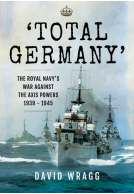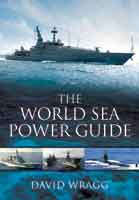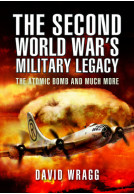Malta: The Last Great Siege, 1940–1943 (Paperback)
Imprint: Pen & Sword Military
Pages: 244
Illustrations: 32
ISBN: 9781526761200
Published: 6th December 2019
Last Released: 15th May 2020
(click here for international delivery rates)
Need a currency converter? Check XE.com for live rates
| Other formats available | Price |
|---|---|
| Malta: The Last Great Siege, 1940–1943 ePub (2.7 MB) Add to Basket | £6.99 |
The strategic importance of Malta sitting astride both the Axis and Allied supply routes in the Mediterranean was obvious to both sides during WW2. As a result the Island became the focal point in a prolonged and dreadful struggle that cost the lives of thousands of servicemen and civilians. After setting the scene for the action, this book tells the story of the Island's stand against the might of the Axis powers that led to the unprecedented award of the George Cross to the whole by King George VI. It not only covers the struggle by the British and Maltese forces on the ground but the vicious fighting in the skies above. At one point the Island's only aircraft were the three antiquated Gloster Gladiators, nicknamed Faith, Hope and Charity. Then of course there was the naval effort to run convoys through with essential supplies not just of war material and oil but food for the starving population. The losses endured were appalling but repeated attempts to run the gauntlet had to be made. This was indeed a great siege involving every man and women on the Island.
David Wragg tells the story using many first hand accounts and yet skillfully explains the strategic situation. The result is an inspiring book worthy of the courage shown by the Islanders and their defenders.
I was inspired to read Malta - The Last Great Siege following my first visit to Malta. Much of Valletta is as it was during WW2, the narrow streets and the majestic Grand Harbour instantly recognisable from the black and white images and news reels from the era. And since the atmosphere of Malta at war had been captured vividly by the tour guide at the Lascaris War Rooms I was looking forward to my reading.
Peter Weedon
But author David Wragg doesn’t quite live up to expectations. He has drawn heavily – probably too heavily – on the Imperial War Museum Sound Archives. That’s a legitimate research tactic, as survivors are going to be expensive to find and interview. And it’s through the words of one of these witnesses that we have the first reference to the Gloster Gladiators – Faith, Hope and Charity – and iconic symbols of Malta’s resistance. But their introduction in the narrative comes two pages further on.
One of the consequences of the disjointed narrative is that Wragg repeats himself frequently, and sometimes on the same page. This is a basic error which the author should have spotted. And it’s immensely frustrating, for this reader at least.
But there is good material throughout the book. The hardship endured by the civilian population and the troops is well told, and highlights the desperate shortage of food. Servicemen and women – and the Governor – shared the same meagre rations. Wragg quotes numerous statistics so references for his figures would have been helpful and assist further research.
Despite the faults I think the book answers the question “What did Malta do in the war?” Unlike its northern neighbour Sicily and the other Mediterranean islands, Malta kept first the Italians and then the Germans at bay, paying a heavy price in casualties but making its foes pay dearly too. Wragg explains how Malta maintained its freedom and explores what else could have been done to protect the island.
I’m reluctant to be too harsh on any author who has the made the effort to get his words into print. Malta – The Last Great Siege could and should have been better and would benefit from a revision. The book will appeal to a wide audience and is light enough for the holidaymaker while remaining useful for the WW2 enthusiast.
The siege of Malta during World War II was one of the longest and (not mention the siege of Leningrad) deadliest campaigns of such kind. For almost three years the island’s inhabitants and its garrison sustained constant air raids, strong food rationing (up to the margin of starvation) and threat of air-sea invasion. Moreover all that time (apart from a few months) Malta provided facilities to Royal Navy and Royal Air Force bases. A significant part of Allied victory in Mediterranean is credited to successful interdiction of Axis maritime communications to North Africa made by surface ships and submarines, torpedo bombers and reconnaissance planes from Malta.
Mykhaylo Akimov
Together with the vast comprehensive study of the above mentioned matters David Wragg’s book tells the story of ordinary civilians. Using vivid accounts as well as hand-picked documents meticulously collected from different sources, author shows how simple Maltese men and women lived on besieged island – with courage and patience, hoping and praying for the next convoy and for the final salvation.
The siege of Malta during World War II was one of the longest and (not mention the siege of Leningrad) deadliest campaigns of such kind. For almost three years the island’s inhabitants and its garrison sustained constant air raids, strong food rationing (up to the margin of starvation) and threat of air-sea invasion. Moreover all that time (apart from a few months) Malta provided facilities to Royal Navy and Royal Air Force bases. A significant part of Allied victory in Mediterranean is credited to successful interdiction of Axis maritime communications to North Africa made by surface ships and submarines, torpedo bombers and reconnaissance planes from Malta.
Mykhaylo Akimov
Together with the vast comprehensive study of the above mentioned matters David Wragg’s book tells the story of ordinary civilians. Using vivid accounts as well as hand-picked documents meticulously collected from different sources, author shows how simple Maltese men and women lived on besieged island – with courage and patience, hoping and praying for the next convoy and for the final salvation.
The siege of Malta during World War II was one of the longest and (not mention the siege of Leningrad) deadliest campaigns of such kind. For almost three years the island’s inhabitants and its garrison sustained constant air raids, strong food rationing (up to the margin of starvation) and threat of air-sea invasion. Moreover all that time (apart from a few months) Malta provided facilities to Royal Navy and Royal Air Force bases. A significant part of Allied victory in Mediterranean is credited to successful interdiction of Axis maritime communications to North Africa made by surface ships and submarines, torpedo bombers and reconnaissance planes from Malta.
Mykhaylo Akimov
Together with the vast comprehensive study of the above mentioned matters David Wragg’s book tells the story of ordinary civilians. Using vivid accounts as well as hand-picked documents meticulously collected from different sources, author shows how simple Maltese men and women lived on besieged island – with courage and patience, hoping and praying for the next convoy and for the final salvation
About David Wragg
David Wragg is a prolific military historian who specialises in naval aviation subjects. He has been published widely in the UK and USA and in four languages.
He has numerous books in print with Pen and Sword and is the author of over thirty maritime, aviation and transport works.




















